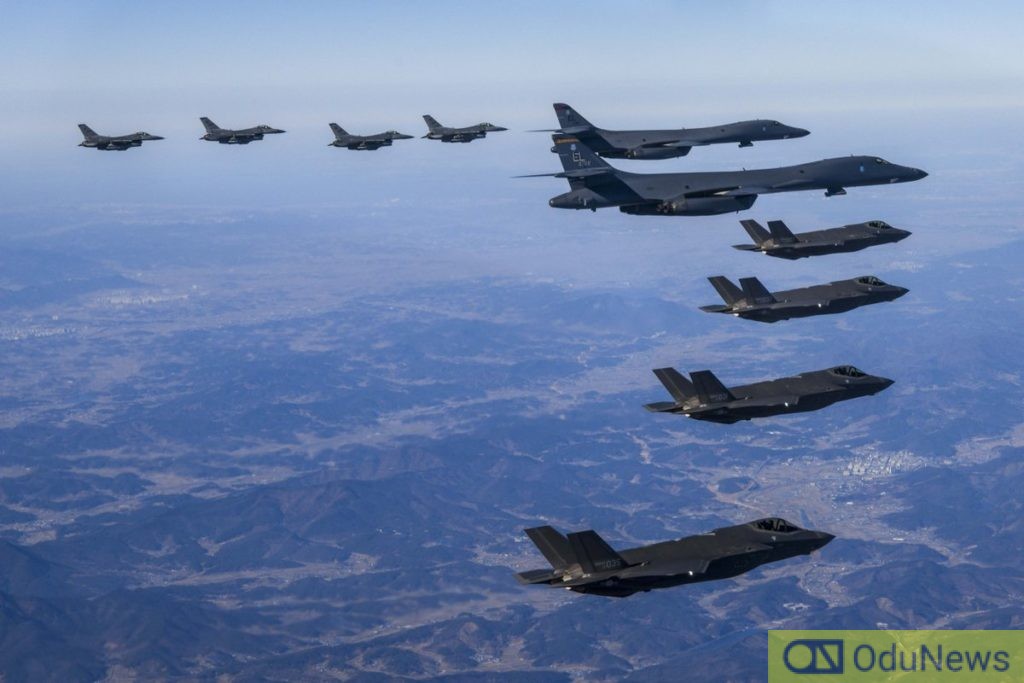North Korea has fired two ballistic missiles off its east coast on Monday, South Korea’s military has confirmed.
The test has been condemned by the head of the ruling party in South Korea, who warned that such continued provocations by Pyongyang would only encourage calls for the South to develop its own nuclear deterrent.
This would raise tensions on the peninsula. The launches came two days after North Korea fired an intercontinental ballistic missile (ICBM) into the sea off Japan’s west coast, prompting joint air exercises by the US and South Korea.
North Korea’s leader, Kim Jong-un’s sister, Kim Yo-jong, has warned against the increased presence of US strategic assets on the Korean peninsula after the joint air exercises on Sunday.
Chung Jin-suk, the head of the ruling People Power party, stated that South Korea had a “clear option” to counter North Korea’s continued development of ballistic missiles and nuclear weapons. He added that the country needs to strengthen its “Kill Chain” so North Korea can never rise to its feet again if it uses nukes on the Korean peninsula.
Kill Chain refers to a preemptive strike capability under which the South would attempt to “decapitate” the regime’s leadership when facing an imminent nuclear attack from the North.
North Korea’s state media confirmed that the country fired two projectiles from a multiple rocket launcher, aiming at targets 395km and 337km away. Japan’s defense ministry reported that the two ballistic missiles fired on Monday morning reached a maximum altitude of about 100km and 50km, traveling a distance of about 350-400km before falling outside Japan’s exclusive economic zone.
North Korea’s continued missile launches have raised concerns among its neighboring countries, including South Korea and Japan, as well as the US. UN Secretary-General Antonio Guterres has called on Pyongyang to cease “provocative actions.” Meanwhile, there is strong public support in South Korea for arming the country with nuclear weapons, with a recent Gallup Korea poll showing that 76% of respondents believe that the country needs to develop its nuclear deterrent.



Comments are closed.